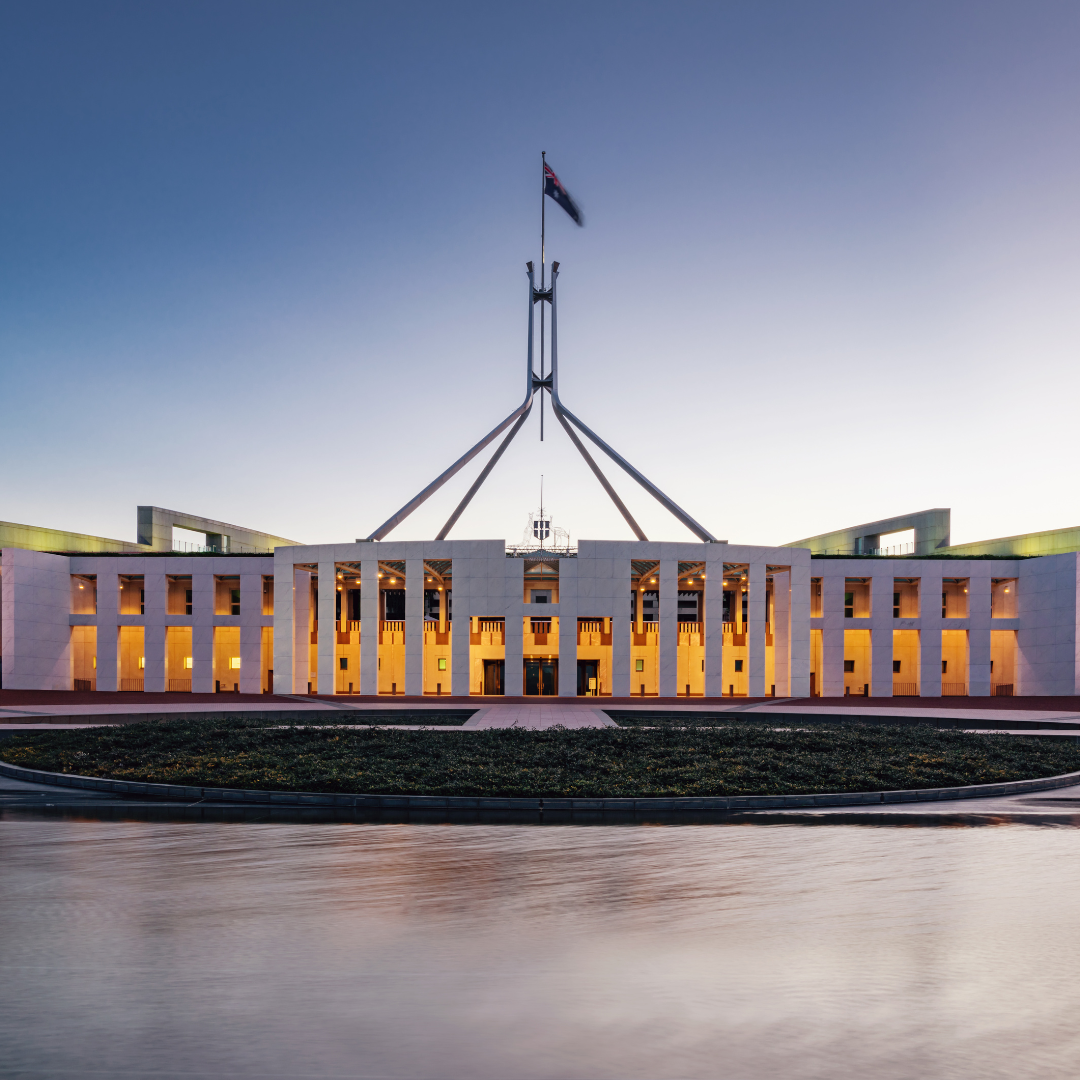Budget 2025-26
The Government’s big moment in the 2025-26 Federal Budget was the personal income tax cuts. Income tax cuts are a dazzling headline but in reality they deliver a tax saving of up to $268 in the 2026-27 year, with a tax saving of up to $536 from the 2027-28 year.
At the same time, the Australian Taxation Office has been allocated almost $1bn in funding to extend and enhance its compliance programs.
A previously announced measure of note that has not passed Parliament but remains in the Budget is the tax on super accounts above $3m (a 30% tax on future earnings for superannuation balances above $3 million). This measure has stalled in Parliament and, assuming it is not passed in the final days of Parliament, will lapse when an election is called.
Budget 2025-26 is a budget for voter appeal with over $7bn in additional spending measures in 2025-26 and over $20bn across five years. Most measures extend previously announced and Budgeted items for another year. Key initiatives include:
Energy
- $1.8bn to deliver a $150 energy bill rebate extension until the end of 2025.
Healthcare
- $8.5bn on Medicare for increases to Medicare payments, 50 new urgent care clinics, and a bulk billed GP service.
- $1.8bn over 5 years for cheaper medicines on the Pharmaceutical Benefits Scheme.
- $240m for women’s health – reproductive health and menopause.
Education
- $500m to provide a 20% cut to HECS-HELP debt for students, and a realignment of the repayment schedule to reduce the amount required to be paid (from 1 July 2025).
Housing
- $800m to expand the ‘Help to Buy’ scheme reducing the size of the deposit required to buy a home by co-buying with the Government.
Families
- Three days of subsidised childcare for families with young children (income tested) from 1 January 2026 replacing the Child Care Subsidy activity test.
Lifestyle. - From August, the excise on beer will be frozen for 2 years.
Economically, trade tensions have magnified global uncertainty. Global growth is already subdued. The indirect effect of tariffs is estimated to be nearly four times as large as the direct effect on Australia, reflecting the relative importance of affected trade flows between Australia, China, and the United States.
Australia’s economy is expected to grow, albeit slowly at 2.25% in 2025-26 and 2.5% in 2026-27.
The Budget will be in deficit at -$42.1bn in 2025-26, before improving marginally but remaining in the red.

Individuals & families
“Modest” two stage personal income tax cut
From 1 July 2026
The Government will provide a “modest” tax cut to all taxpayers from 1 July 2026 and again from 1 July 2027.
The tax rate for the $18,201-$45,000 tax bracket will reduce from its current rate of 16%, to 15% from 1 July 2026, then to 14% from 2027-28 at a cost of $648m over four years.
The saving from the tax cut represents a maximum of $268 in the 2026-27 year and $536 from the 2027-28 year.
The legislation enabling the tax cut passed Parliament on 26 March 2025.
Resources: – Fact Sheet: Personal Income Tax Cuts
Medicare levy thresholds increased for low-income earners
From 1 July 2024
The Medicare levy low-income threshold exempts low-income earners from having to pay the levy. From 1 July 2024, the threshold for the exemption will increase.
The change will mean low-income earners will pay less when they lodge their income tax returns for 2024-25.
Income thresholds by household type
| Household Type | 2024–25 | 2025–26 |
|---|---|---|
| Singles | $26,000 | $27,222 |
| Families | $43,846 | $45,907 |
| Single seniors & pensioners | $41,089 | $43,020 |
| Family seniors & pensioners | $57,198 | $59,886 |
| Family additional child or student | $4,216 | $4,027 |
The threshold changes come at a cost of $648m over 5 years.
The legislation enabling the threshold change passed Parliament on 26 March 2025.
Proposed personal income tax threshold
| Thresholds ($) | Rates in 2024–25 and 2025–26 (%) | Rates in 2026–27 (%) | Rates in 2027–28 (%) |
|---|---|---|---|
| $0 – $18,200 | Tax free | Tax free | Tax free |
| $18,201 – $45,000 | 16% | 15% | 14% |
| $45,001 – $135,000 | 30% | 30% | 30% |
| $135,001 – $190,000 | 37% | 37% | 37% |
| >$190,000 | 45% | 45% | 45% |
Announced – $150 energy bill relief
From 1 July 2025
Households and small business will receive an additional automatic credit of $150 on their energy bills in quarterly instalments between 1 July 2025 and 31 December 2025.
The extension of energy bill rebates will cost $1.8 billion over two years.
Resources: – More energy bill relief for every Australian household and for small business
Foreign resident CGT amendments delayed
From 1 July 2025, the way in which foreign residents interact with the tax system were scheduled to come into effect. These changes have now been delayed.
The start date for proposed amendments to the capital gains tax (CGT) rules for foreign residents has been delayed until 1 October 2025 at the earliest, and potentially later depending on the passage of the reforms through Parliament.
The changes would broaden the range of assets subject to CGT for foreign residents when they dispose of them, amend the rules which determine whether the sale of shares in a company or units in a trust are subject to CGT and require foreign residents to disclose transactions involving shares or trust interests with a value of at least $20 million to the ATO before they occur.
Resources: – ATO Strengthening the foreign resident capital gains tax regime
From 1 April 2025, the Government has banned foreign and temporary residents, and foreign-owned companies, from purchasing established dwellings to prevent ‘land banking’. The ban applies for 2 years but is subject to some limited exceptions.
Resources: – ATO Banning foreign purchases of established dwellings
MIT amendments delayed
The extension of the cleaning building management investment trust (MIT) withholding tax concession was due to commence from 1 July 2025. This has now been delayed until the first 1 January, 1 April, 1 July or 1 October after the Act receives Royal Assent.
The Government will also amend the tax laws to clarify arrangements for MITs to ensure that legitimate investors can continue to access concessional withholding rates. The changes will apply to find payments from 13 March 2025 and will complement the ATO’s increased focus in this area to prevent misuse, see Taxpayer Alert 2025/1.
‘Help to buy’ program extended
The Government’s ‘Help to Buy’ program reduces the deposit required to buy a home by providing an equity contribution. Under the program, Housing Australia provides eligible participants with a Commonwealth equity contribution of up to 30% of the purchase price of an existing home and up to
40% of the purchase price of a new home. That is, they will give you the money and take a stake in your home.
Originally, to be eligible for the program, the income threshold for a single was $90,000 and, for joint participants, $120,000. The Budget increases this threshold to $100,000 and $160,000 respectively. Additional conditions apply.
The program is not currently available to applicants.
Business & employers
Non-compete clauses to be banned
Date From 2027
The Government has announced that it will ban non-compete clauses for low and middle-income employees (under the Fair Work Act high income threshold is currently $175,000). Non‑compete clauses are conditions in employment contracts that prevent or restrict an employee from moving to a competitor.
Back in April 2024, Treasury released an issues paper for consultation on Worker non-compete clauses and other restraints. The review stated that, “The direct consequence of a non-compete clause is that it hinders competition among businesses: it disincentives’ workers from leaving their current job, creating a barrier to the entry of new businesses and the expansion of existing businesses.”

The Government is also make changes to competition law to prevent businesses from:
- Fixing wages by making anti‑competitive arrangements that cap workers’ pay and conditions, without the knowledge and agreement of affected workers.
- Using ‘no‑poach’ agreements to block staff from being hired by competitors.
Resources: – Cracking down on non-compete clauses to boost wages and productivity
Announced – Beer tax paused and benefits for wine and alcohol producers
Date From August 2025 (beer excise) and 1 July 2026 (other measures)
Indexation on the draught beer excise and excise equivalent customs duty rates will be paused for two years from August 2025. This just means that the price of beer won’t go up because of tax.
Support is also provided under the Excise remission scheme for manufacturers of alcoholic beverages increasing caps for all eligible brewers, distillers and wine producers to $400,000 per financial year, from 1 July 2026 (up from $350,000).
Resources: – Albanese Labor Government to freeze draught beer excise
Trade tariffs extended on Russia and Belarus
The Government has extended additional 35% trade tariffs imposed on goods that are the produce or manufacture of Russia or Belarus. The measure is symbolic support for Ukraine as it delivers a negligible increase in revenue over five years.

Government & regulators
Almost $1bn to the ATO for tax compliance
Date From 1 July 2025
The Government has set aside $999m over 4 years for the ATO to expand its compliance programs:
- Tax Avoidance Taskforce
- Shadow Economy Compliance Program
- Personal Income Tax Compliance Program
- Tax Integrity Program (medium and large businesses and wealthy groups)
The compliance programs are expected to deliver a threefold return of $3.2bn.
$700m external contractor cost cutting
The Government intends to further pair back its use of consultants, contractors and labour hire. The budget estimates that the Government will save $718m in 2028-29 by continuing cuts to external labour.
The economy
Growth
Australia’s economy is expected to grow, albeit slowly, at 2.25% in 2025-26 and 2.5% in 2026-27.
The direct impact of Ex-Tropical Cyclone Alfred on economic activity is estimated to be up to 0.25% of GDP.
We’re back in a deficit
The underlying cash balance will be a deficit at -$42.1bn in 2025-26, before improving but remaining in the red for several years.
Debt is also higher, rising from 18.4% of GDP in 2023-24 to an estimated 21.5% in 2025-26, rising to 23.1% by 2028-29.
Employment
The unemployment rate has stayed low, the participation rate remains elevated, and employment has grown by more than one million people since May 2022 with around 80% of jobs created in the private sector since the June quarter 2022.
Unemployment is expected to peak at 4.25%.
Wages
Annual real wages have grown for five consecutive quarters and are forecast to grow by 0.5% in 2024-25.
The Wage Price Index (WPI) grew by 3.2% through the year to the December quarter 2024 and is expected to grow by 3% through the year to the June quarter of 2025 and 3.25% to June 2026.
Inflation
Inflation is expected to be 2.5% through the year to the June quarter 2025.
The moderation of inflation was helped by cost of living relief and a decline in petrol prices towards the end of 2024. Electricity rebates and indexation of rent assistance (Commonwealth and State) reduced headline inflation by 0.75% through the year to the December quarter of 2024.
Global tensions
Economically, trade tensions have magnified global uncertainty. Global growth is already subdued. The indirect effect of tariffs is estimated to be nearly four times as large as the direct effect on Australia, reflecting the relative importance of affected trade flows between Australia, China, and the United States. Retaliatory tariffs, if they occur, will only amplify losses in real GDP.
Contact us
We’re here to help answer your questions. Business matters can be complicated, our experts are on hand to help inform you of every aspect regarding your topic. We take great pride in using our expertise for you and look forward to hearing from you.
Business Hours
Open – Mon-Fri 8.30-5.00
Closed – Sat-Sun and Public Holidays
Contact Us
Viden Insights
Crypto, CGT & You!
Your Guide to Cryptocurrency and Your Tax Return Chat with us today [...]
RBA Cuts Rates to 3.60%
RBA Cuts Rates to 3.60% What this Means for You Chat with us today [...]
Superannuation Guarantee Update 2025
Superannuation Guarantee Key Dates & What to Do (Now at 12%) Chat with us today [...]
20% Student Loan Debt Reduction
20% Student Loan Debt Reduction What You Need to Know Chat with us today [...]
ATO Warns to Watch Out for Scams
ATO Warns to Watch Out for Scams Chat with us today With scams [...]
